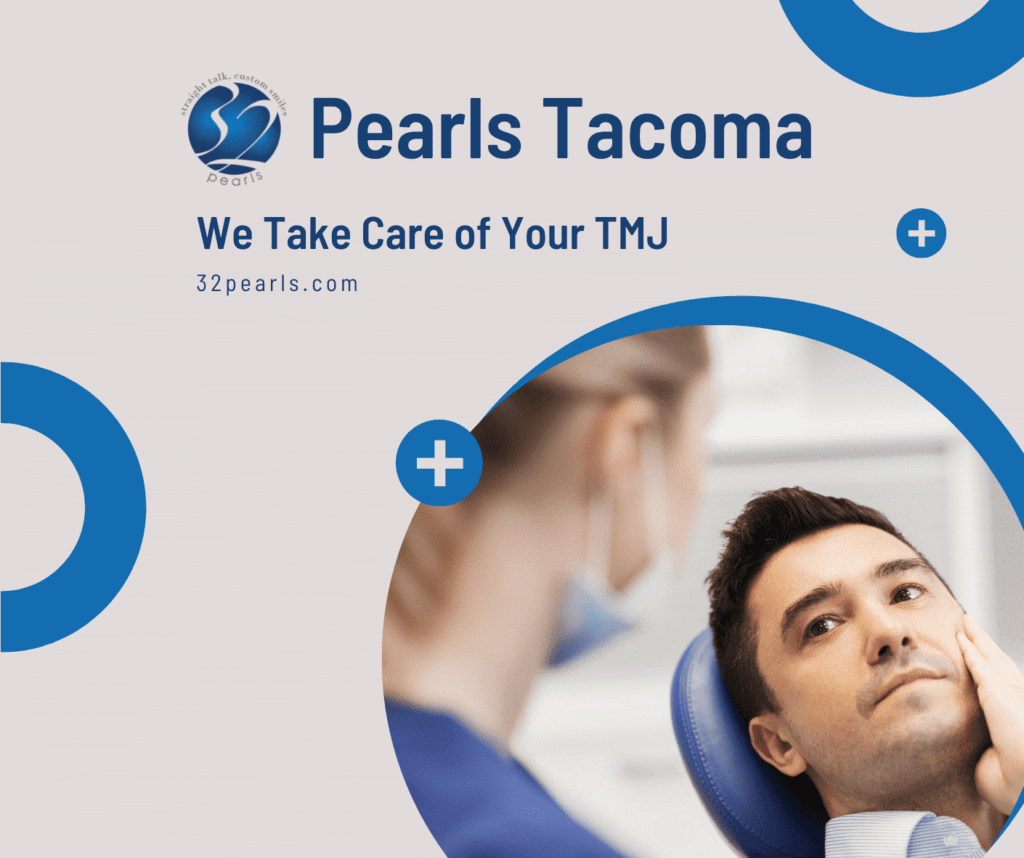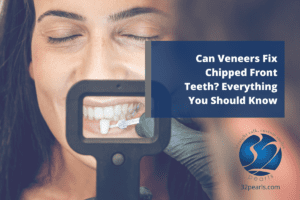
The temporomandibular joint (TMJ) is the medical name for your jaw joint. Temporomandibular joint disorder can be frustrating, and I sympathize if you’re feeling down about the symptoms. But it’s important to keep in mind that help is available. Simple self-care techniques such as rest, warm compresses, and over-the-counter pain relievers are effective for mild cases. If your lock jaw pain persists despite these efforts, it’s time to bring in a professional. 32 Pearls is the #1 preferred Tacoma dental office that treats and relieves chronic TMJ pain. Be sure to call if you are experiencing symptoms of TMJ. (206) 564-7911
TMJ affects up to 15% of Americans, and women are almost twice as likely as men to get TMJ.
TMJ affects up to 15% of Americans, and women are almost twice as likely as men to get TMJ. Additionally, ethnicity is not a factor in developing TMJ—men and women of all ethnicities can suffer from this condition
Bruxism (teeth grinding), trauma, arthritis, or tooth loss can cause TMJ.
Do you ever find yourself grinding your teeth, especially at night? That is a condition called bruxism. Bruxism can cause TMJ because it places stress on the jaw joint and the muscles in your face, causing pain and swelling. If you have been hit in the face or head, that could also cause TMJ. Arthritis, which causes pain and swelling in joints throughout your body, could also be responsible for TMJ. If you have lost some of your teeth or had dental work that changes the way your top and bottom teeth fit together (such as braces or caps), this could cause TMJ.
Many people are also genetically prone to TMJ problems. Fortunately, most cases of TMJ are treated with simple lifestyle changes such as avoiding chewing gum and eating soft foods until the pain goes away. But if you are experiencing symptoms regularly, call 32 Pearls to identify what kind of treatment is best for you before it gets worse!
Regularly visiting a dentist will help prevent tooth loss that can lead to jaw problems and help with other things like stress management. Extended moments of elevated stress lead to other conditions that contribute to TMJ symptoms.
Symptoms of TMJ include pain, clicking or popping in your jaw, and limited mobility.
- Pain in the jaw joining
- Pain in the face
- Pain in the ear
- Clicking or Popping in the jaw
- Limited mobility in the joint
- Locking of the jaw
- Jaw deviation
- Difficulty chewing
- Painful chewing
First Steps for Treating TMJ
The first steps in treating TMJ are simple self-care treatments like rest, warm compresses, over-the-counter pain relievers, and avoiding hard foods or gum chewing. These may be enough to relieve symptoms of lockjaw. If these methods don’t help you manage your jaw pain, talk with your doctor about more advanced treatments. These can include:
- Dental splints or mouth guards: If you grind your teeth at night, a splint may help by keeping your upper and lower teeth separated when you sleep. A mouth guard is another type of appliance that can cushion the joint and protect it from damage during the day.
- Physical therapy: This treatment involves guided exercises to stretch and strengthen the muscles around your jaw. You also learn new ways to relax those muscles when they are tense or clenched during stressful situations. Therapeutic massage techniques can help relieve tightness in the muscles that control jaw movement and pain in other parts of your face caused by tension headaches related to TMJ problems.
- Surgery: Some severe cases of TMD require surgery to realign joints or repair damaged joint cartilage that causes pain in a person’s jaw area as well as their neck and shoulders as a result of muscle spasms triggered by lockjaw symptoms.
There are several treatments to ease symptoms of TMJ. 32 Pearls has the solutions and remedies.
Sleep in a different position. It may be helpful to sleep on your back, with support under your neck and knees.
- Avoid opening your jaw wide. Do not chew gum or eat hard foods that require you to open wide.
- Try relaxation techniques. Tensing the muscles around your jaw causes them to contract, which can make symptoms worse. Relaxing the muscles can help you control pain and pain-related habits such as teeth grinding or clenching.
- If your symptoms persist for more than a week, talk to a dentist about treatment options such as:
- Mouth guards or other dental devices to treat clenching or grinding of teeth during sleep (bruxism)
- Medication for pain relief from TMJ disorder
Contact or call 32 Pearls for advanced TMJ treatment options in Tacoma. Stop the pain. (253) 564-7911
For more information see: TMD The National Institute of Dental and Craniofacial research





